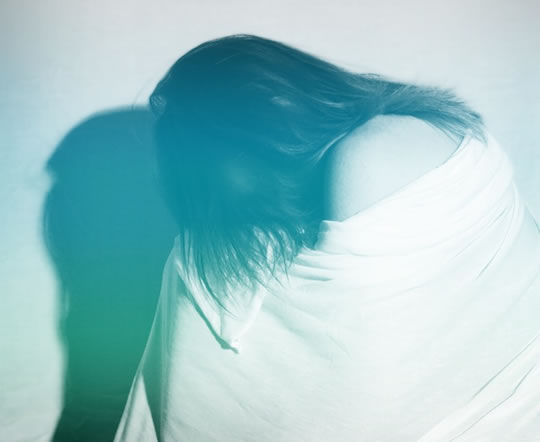It can be hard to tell what is anxiety and whether it needs treatment.
Anxiety is a sense of uneasiness, concern or agitation that varies from mild to severe.
At the milder end, it is vague and starts to make you feel unsettled, jumpy and worried.
Towards the more severe end it provokes inner turmoil, feelings of dread and can have a serious impact on everyday life.
What is anxiety?
Everyone experiences anxiety to some degree and sometimes these responses are severe.
Examinations, medical procedures, public speaking and so on can lead to anxiety and loss of sleep.
How anxiety impacts your everyday life determines whether it is a ‘disorder’ or ‘regular’ anxiety.
Anxiety that causes persistent problems with sleeping or seriously interferes with everyday life could require some treatment.
Some people get very anxious over things which others would not consider that anxiety-provoking.
If you are worrying all the time or regularly experiencing unpleasant physical and psychological symptoms, then this could be a sign of something deeper.
Deep-rooted anxiety often leads to avoidance of the anxiety-provoking object or situation.
This type of anxiety can consistently stop you from doing the things you might otherwise like to do.
Anxiety symptoms
Anxiety typically has both psychological and physical symptoms.
Here are some typical psychological symptoms:
- Feeling nervous and tense.
- Finding it hard to concentrate and settle down.
- Thinking a lot of negative thoughts.
- Experiencing a sense of dread that something horrible is about to happen.
- Sensation of the the mind being filled with thoughts rushing through it.
Physical symptoms could include:
- Problems sleeping.
- Feeling sick.
- A churning stomach.
- Breathing heavily.
- Sweating.
- Hot flashes.
- Muscle tension and headaches.
This is not a completely list, people report many different types of physical and psychological symptoms.
Severe anxiety is also linked to depression, insomnia and misusing drugs.
It can lead to problems at work and in relationships and difficulty in enjoying everyday, pleasurable pursuits.
Causes of anxiety
There are a large range of factors that could influence whether you experience anxiety as a mental health problem.
Here are some possible causes:
- Anxious personality. Some people are genetically prone to anxiety.
- Childhood experiences. Bullying, hostile parents or other frightening experiences during childhood.
- Long-term health problems like chronic pain are linked to anxiety.
- Everyday habits such as working long hours, financial or housing problems and stress can cause anxiety.
Often, chronic anxiety stems from a variety of causes specific to your lifestyle, situation and genetics mixed together.
Types of anxiety disorders
Anxiety disorders come in various types.
These are some of the main ones:
- Generalised anxiety and worry: constantly worrying about a wide range of issues, rather than something specific.
- Social phobia: fear of other people and social interactions. This can stop people with social phobia from getting the things they want: relationships, promotions or just human contact in general.
- Specific phobias: fears of things like the environment, snakes, spiders, enclosed spaces, blood, injections and so on.
- Panic: involves the experience of intense fear, including a very strong physical reaction and the sensation of being about to die or losing complete mental control.
- OCD: people experience intrusive thoughts that are repulsive to them and also possibly engaging in repetitive behaviours.
What is anxiety therapy?
Psychological therapies are very effective for anxiety disorders.
In particular, cognitive-behavioural therapy (CBT) has been found to help many types of anxiety disorders.
Dr Jeremy Dean’s latest book “The Anxiety Plan” is based on the principles of CBT and provides 42 strategies for dealing with anxiety.
Other ways of managing anxiety yourself include:
- Support groups.
- Eating healthily.
- Complementary therapies like yoga and meditation.
- Exercise.
Understandably, some people find self-help too difficult.
If so, psychologists, psychiatrists and other mental health professionals can provide the psychological support required.
What is anxiety medication?
Along with psychological therapies, people are often prescribed medications.
Some people find they need medication, but bear in mind that:
- It can be difficult to come off medications.
- Medications have all sorts of side-effects.
- If possible, it is better to learn to deal with anxiety using internal, psychological resources.
Four types of medication are:
- Antidepressants. Make you feel calmer, but there are side-effects.
- Beta-blockers. Reduce the physical symptoms of anxiety, such as a racing heart and shaking hands. However, they do not change the psychological symptoms.
- Tranquillisers. Should only be used in the short-term until you can start therapy or some other treatment.
- Pregabalin (Lyrica). This is an anticonvulsant drug sometimes prescribed for anxiety.
Even if you do decide to take medication, also consider self-help options at the same time as these can work better in the long-run.
→ Get Dr Jeremy Dean’s new anxiety ebook.

